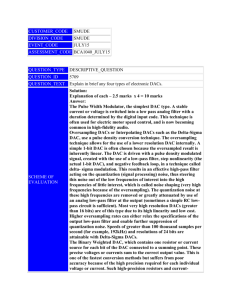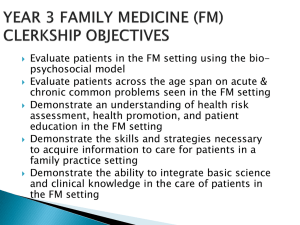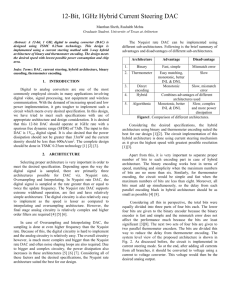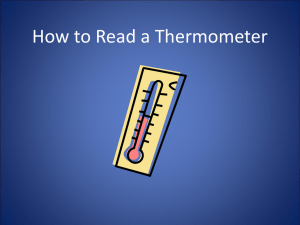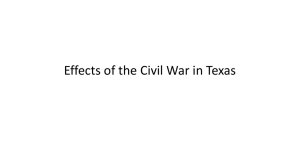Presentation 1
advertisement
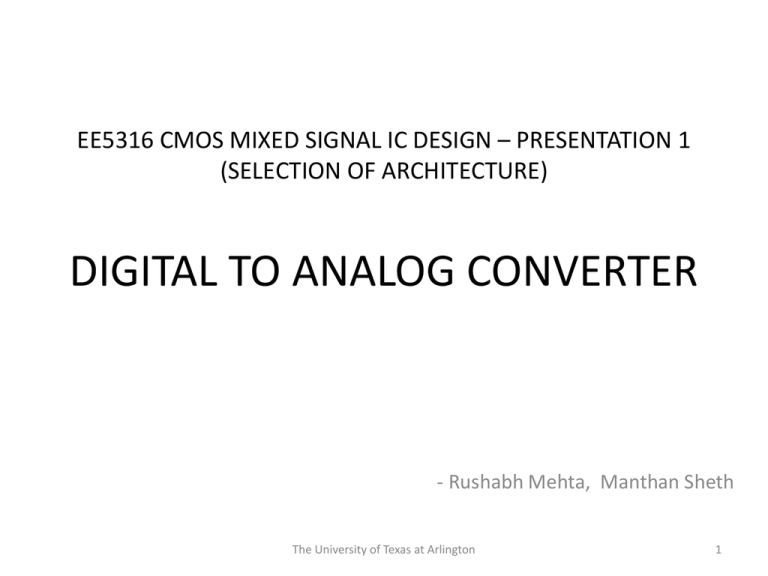
EE5316 CMOS MIXED SIGNAL IC DESIGN – PRESENTATION 1 (SELECTION OF ARCHITECTURE) DIGITAL TO ANALOG CONVERTER - Rushabh Mehta, Manthan Sheth The University of Texas at Arlington 1 ARCHITECTURE NYQUIST RATE OVERSAMPLING INTERPOLATING • BINARY WEIGHTED • Fast • Less complex circuitry • Prone to mismatch errors • THERMOMETER CODED • Easy matching • Monotonic • Better INL & DNL than binary weighted • Slower than binary weighted • DIRECT ENCODED • Low speed due to RC delays • Resistor matching difficult • HYBRID • Contains segments of various other architectures • ALGORITHMIC • Slow • High real estate & power consumption The University of Texas at Arlington 2 BINARY WEIGHTED DAC • CURRENT STEERING • Consumes less real estate • Fast for resolution < 10bits • High power efficiency • R - 2R LADDER • High power consumption • Good impedance matching • Prone to glitch problems • CHARGE REDISTRIBUTION DAC • Slow due to RC delays • Finite bandwidth of opamp The University of Texas at Arlington 3 THERMOMETER CODED DAC • Converts binary input into thermometer code • N binary inputs give 2n – 1 thermometer coded bits • Reference elements are equal in size thus aiding matching of the various elements • Monotonic in nature with INL & DNL better than binary weighted DACs The University of Texas at Arlington 4 HYBRID DAC • Employs a combination of the afore-mentioned architectures • Hence includes the advantages of the respective architecture The University of Texas at Arlington 5 DOUBLE SEGMENTED THERMOMETER CODED WITH BINARY WEIGHTED CURRENT STEERING • For the given specifications, the Double Segmented Thermometer Coded with Binary Weighted Current Steering hybrid architecture is used. • It promises to meet the required SFDR and Speed requirements. • Double segmented is proposed for reduced area 12 The University of Texas at Arlington 6 CIRCUIT IMPLEMENTATION Current Steering implementation for Thermometer Coded DAC Segment Current Steering implementation for Binary Weighted DAC Segment The University of Texas at Arlington 7

